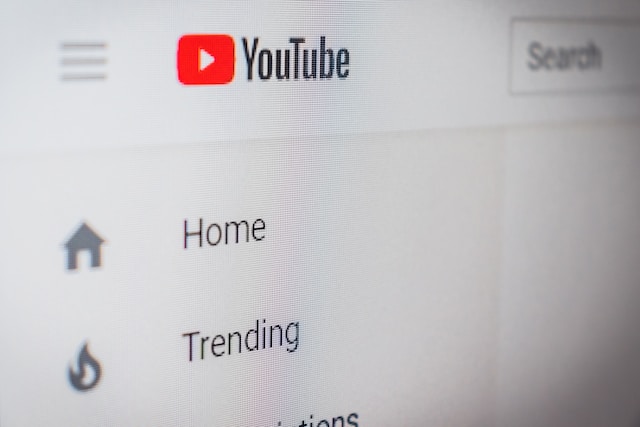In the fast-paced digital age we live in today, the traditional methods of marketing are rapidly evolving to keep up with the changing times. Digital marketing has emerged as a powerhouse, revolutionizing the way businesses reach and engage their target audiences. This article will explore the intricate world of digital marketing, delving into its various facets, strategies, and why it has become an indispensable tool for businesses in the 21st century.
The Digital Transformation
Digital marketing encompasses various online strategies and tactics to promote products, services, or brands. Before we dive into the specifics, let’s first understand the profound transformation the business landscape has undergone.
1: The Shift to Online Platforms
The digital era has ushered in a world where people spend a significant portion of their lives online. From shopping and socializing to working and learning, the internet has become integral to our daily routines. This shift in consumer behavior has made online platforms ideal for businesses to connect with their target audiences.
2: The Need for Adaptation
To remain competitive, businesses must adapt to the changing landscape. While not obsolete, traditional marketing methods like print ads and TV commercials have limitations in reaching today’s digitally connected consumers. Digital marketing, on the other hand, offers a range of tools and strategies that are cost-effective and highly efficient in reaching the right audience.
Understanding Digital Marketing
Digital marketing is a multifaceted concept encompassing various strategies and channels. Let’s break down some of the key components:
1: Search Engine Optimization (SEO)
SEO involves optimizing a website’s content and structure to rank higher on search engine results pages (SERPs). The goal is to increase organic (non-paid) traffic by improving visibility when users search for relevant keywords. Effective SEO strategies include keyword research, on-page optimization, and link building.
2: Content Marketing

Content marketing involves creating and distributing valuable, relevant, and consistent content to attract and engage a target audience. This content can take various forms, such as blog posts, videos, infographics, and ebooks. The objective is to provide information, solve problems, and build trust with the audience, ultimately driving conversions.
3: Social Media Marketing
Social media platforms like Facebook, Instagram, Twitter, and LinkedIn have become vital for businesses to connect with their audience. Social media marketing involves creating and sharing content on these platforms to increase brand awareness, engage with followers, and drive traffic to the company’s website.
4: Email Marketing

Email marketing remains an effective tool for nurturing leads and retaining customers. It involves sending targeted emails to a list of subscribers to promote products, share valuable content, and build relationships. Personalization and segmentation are key strategies in email marketing to ensure messages resonate with recipients.
5: Pay-Per-Click Advertising (PPC)
PPC advertising allows businesses to display ads on search engines and other online platforms and pay only when a user clicks on their ad. Google Ads and Facebook Ads are popular PPC platforms. This method offers precise targeting options and immediate results, making it a preferred choice for many businesses.
6: Affiliate Marketing

Affiliate marketing is a performance-based strategy where businesses partner with affiliates or publishers to promote their products or services. Affiliates earn a commission for each sale or lead generated through their marketing efforts. It’s a win-win situation, as businesses gain exposure, and affiliates earn income.
The Advantages of Digital Marketing
Now that we’ve covered the main components of digital marketing, let’s explore why it has become the go-to choice for businesses worldwide.
1: Cost-Effective
Compared to traditional advertising methods like TV commercials and print ads, digital marketing is often more cost-effective. Thanks to the precise targeting options available on digital platforms, you can reach a global audience with a smaller budget.
2: Targeted Audience

Digital marketing allows businesses to reach a highly targeted audience. Through data analytics and user profiling, you can tailor your marketing efforts to reach individuals who are more likely to convert, increasing the return on investment (ROI).
3: Real-Time Analytics
One of the major advantages of digital marketing is the ability to track and measure results in real-time. You can monitor website traffic, conversion, and click-through rates. This data-driven approach enables businesses to make informed decisions and optimize their marketing strategies.
4: Improved Engagement
Engagement is crucial in the digital age, and digital marketing excels. Social media platforms, for instance, provide a space for businesses to interact with their audience directly, fostering relationships and building brand loyalty.
5: Global Reach
Digital marketing transcends geographical boundaries. With the internet, you can reach a global audience, breaking down barriers that were once impossible for businesses limited by physical locations.
6: Flexibility and Adaptability
Digital marketing strategies can be adjusted on the fly. If a campaign isn’t delivering the desired results, you can tweak it in real-time. This adaptability allows businesses to stay agile and responsive in a rapidly changing market.
The Future of Digital Marketing
As technology continues to advance, so does digital marketing. Here are some trends and developments shaping its future:
1: Artificial Intelligence (AI)

AI is transforming digital marketing by automating tasks, personalizing user experiences, and analyzing data at a scale humans cannot match. Chatbots, predictive analytics, and AI-driven content creation are examples of how AI enhances digital marketing strategies.
2: Voice Search Optimization
With the increasing popularity of voice-activated devices like Amazon’s Alexa and Google Home, optimizing content for voice search is becoming essential. Marketers need to adapt their SEO strategies to cater to voice queries.
3: Video Marketing Dominance

Video content is taking center stage in digital marketing. Short-form videos on platforms like TikTok and Instagram Reels and long-form YouTube content drive engagement and conversions. Live streaming is also gaining momentum as an authentic way to connect with audiences.
4: Data Privacy Regulations
As concerns about data privacy grow, regulations like the General Data Protection Regulation (GDPR) and the California Consumer Privacy Act (CCPA) have been enacted. Adhering to these regulations is crucial for digital marketers to maintain trust with their audiences.
Conclusion
Digital marketing is not just a trend; it’s a fundamental shift in the way businesses connect with their audience. In a world dominated by technology and connectivity, understanding and harnessing the power of digital marketing is essential for any business seeking to thrive in the digital age. With its cost-effectiveness, precision targeting, real-time analytics, and adaptability, digital marketing offers a potent arsenal for businesses to stay competitive and continue evolving in an ever-changing landscape. Embrace the digital revolution, and watch your brand soar to new heights online.









+ There are no comments
Add yours